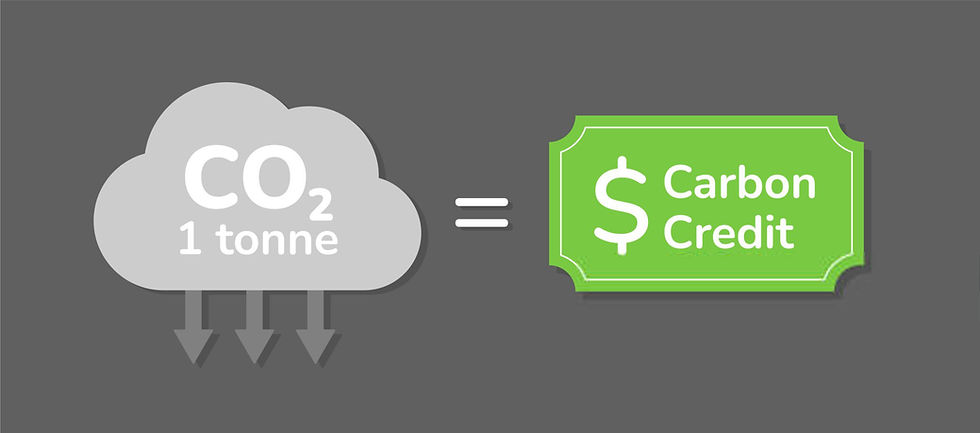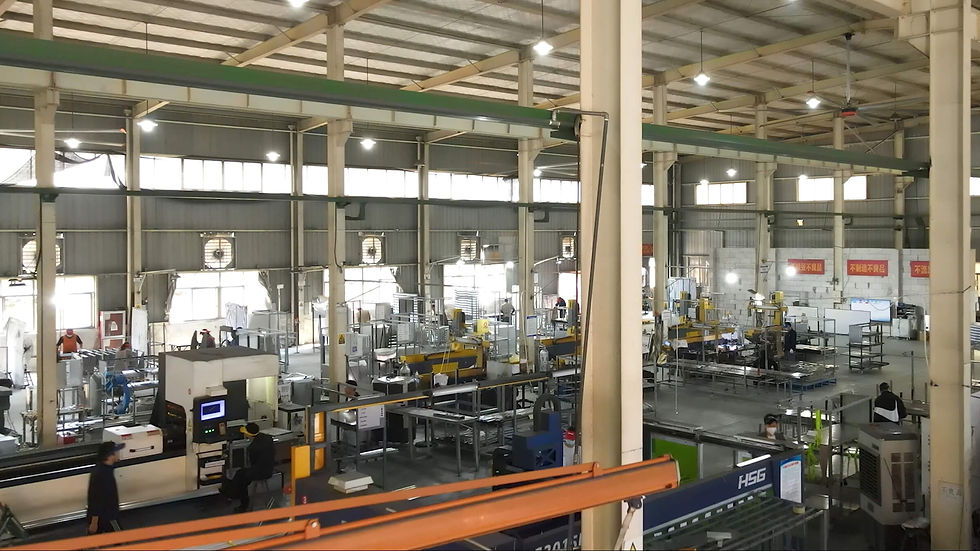CBAM Is Coming, BSCI Is Getting Stricter – Without a Strong Supply Chain, How Can Cooperation Be Sustained?
- Catrina

- Aug 27, 2025
- 6 min read
From regulations to delivery, from compliance to customization — since 2025, the way European buyers evaluate suppliers has fundamentally changed.
Compliance is just the beginning. To succeed in 2025 and beyond, procurement leaders need resilient, responsive, and sustainable supply chain partners.
Over the last 20 years, I’ve seen the buying landscape in Europe shift — from price focus to quality focus, and now to compliance and sustainability. But 2025? It feels different. Not just different. Transformative.
As procurement managers and supply chain leads, you’re not just sourcing a product — you’re buying peace of mind. That peace is getting harder to find. The EU’s CBAM regulation and stricter BSCI enforcement have added layers of complexity to supplier evaluation. It’s no longer about who can manufacture; it’s about who can comply, deliver, and respond — all at once.
This article will walk you through what CBAM is, how it changes procurement, and most importantly — how Hongmao Garden is engineered to be your ideal partner in this new era.
We’ll answer:
What exactly is CBAM, and why is it shaking up the supply chain?
How do BSCI and CBAM intersect?
What are the hidden risks in ‘compliant-only’ factories?
How does a real supply chain fortress like Hongmao solve this?
Let’s dig in.

Table of Contents
What is CBAM and how will it be implemented?
The Carbon Border Adjustment Mechanism (CBAM) is the EU’s new way of leveling the carbon playing field. Starting January 1, 2026, it introduces reporting and carbon costs on imported products like steel, aluminum, and cement — all essentials in outdoor garden products.
CBAM isn’t just a policy. It’s a supply chain reality. For EU buyers, it means suppliers must now prove carbon transparency — or risk regulatory chaos, delays, and rising costs.
Let’s say you’re sourcing galvanized steel parcel boxes from China. Today, you negotiate on price, quality, lead time. Starting in 2026, you also need:
Verified carbon emissions data from the factory
Proof of raw material origin and emissions
Compliance with quarterly EU carbon reporting
That’s not paperwork — that’s infrastructure. Factories without CBAM systems will slow you down or shut you out.
CBAM will be implemented in phases:
Transition Phase (2023–2025): Importers must report embedded emissions.
Operational Phase (2026 onward): Carbon tariffs will be charged per ton of CO2 equivalent.
Affected product categories include:
Iron and steel
Aluminum
Fertilizers
Electricity and cement
That means: outdoor storage units, bike sheds, garbage box frames — anything made from steel — must come from suppliers who can play by these new rules.
If they can't? You're exposed to penalties, border delays, or being cut off from EU platforms altogether.
Partner only with manufacturers who have embedded CBAM-readiness in their operations.

Which companies are affected by CBAM?
Is your factory on the CBAM radar? If it's metal-based — yes.
Even if you're not importing emissions-heavy products today, your supply chain might be using raw materials or semi-finished parts that fall under CBAM’s jurisdiction.
Companies affected include:
Metal box manufacturers
Outdoor furniture suppliers using aluminum or steel
Component factories supplying European platforms
So, if your product has:
Steel frames
Aluminum sheets
Metal fasteners or internal supports
You're in CBAM territory.
A common misunderstanding I hear from European buyers is: “We only import assembled garden products, not raw materials, so we’re safe.” Unfortunately, not true. CBAM traces the carbon trail back to the raw material level — and you, the importer, are held accountable.
How should companies prepare for CBAM?
Feeling overwhelmed by new compliance burdens? You’re not alone — but you can get ready.
Here's what I advise buyers and factories in 2025:
Audit your supply chain: Identify products using steel, aluminum, or other CBAM materials.
Ask your suppliers for carbon data: If they can’t provide it, they’re not ready.
Choose manufacturers with ERP + carbon traceability systems: Manual Excel sheets won’t cut it anymore.
Understand how CBAM costs affect your pricing: Calculate margins accordingly.
At Hongmao Garden, we’ve worked with TÜV to establish quarterly carbon emission reports, tied directly to our internal systems. We track carbon output at every step — cutting, welding, powder coating — and generate traceable declarations you can submit to EU customs without friction.
Preparation Step | Hongmao Garden's Readiness |
Supplier Carbon Report | ✅ TÜV Quarterly Reports |
Raw Material Traceability | ✅ ERP-Integrated Supplier Data |
Low Carbon Processes | ✅ Powder Coating, Solar Energy |
If your current suppliers can’t match this level of readiness, you may need to rethink your sourcing base before Q1 2026.
How does CBAM affect Chinese manufacturers?
What’s really happening behind the factory gates in China? The truth might surprise you.
CBAM is creating a major divide between:
Low-cost, low-compliance workshops
Future-ready, export-class manufacturers
Small factories — even if compliant on paper — struggle to generate data, manage supplier traceability, or handle audits. Many aren’t even aware that their galvanized steel now requires carbon reporting.
Here’s what we’ve seen:
They can’t report: No ERP, no traceable data.
They underreport or guess: Which leads to customs rejection.
They delay: Because they don't have systems in place.
At Hongmao Garden, we’ve taken a different approach:
Installed ERP system that tracks production carbon footprint
Embedded TÜV audits into our quarterly process
Work directly with EU customs consultants to stay ahead of requirements
Our clients don’t worry about whether their product will clear customs — we’ve already handled it. That’s peace of mind.
Supplier Type | CBAM Readiness | Risk Level |
Local Workshop | ❌ None | 🔥 High |
Hongmao Garden | ✅ Full-System | ✅ Low |

Why isn't compliance enough in 2025?
So your supplier passed BSCI. That’s great. But… can they deliver your goods on time during peak season?
I’ve seen this happen too often — a factory proudly shows a framed BSCI certificate, but then:
Misses Black Friday delivery windows
Ignores changes in your Amazon packaging requirement
Can’t provide REACH or CBAM data
In 2025, compliance is no longer a competitive edge — it’s the bare minimum.
What buyers really need now:
Customization agility
Digital documentation
Flexible production capacity
Proactive after-sales support
These things don’t show up in an audit — they show up in your risk profile.

What makes Hongmao Garden's supply chain resilient?
Looking for a factory that won’t just survive CBAM — but help you thrive in it?
That’s what we built Hongmao Garden to be.
Here’s what makes us different:
🏭 Strategic Location
Our factory in Taizhou, China’s metal manufacturing heartland — close to Ningbo Port. Within 100km, we source all raw materials, surface treatment, and tooling.
That means:
Shorter turnaround
Lower transport emissions
Faster response

⚙️ Smart Manufacturing
We don’t rely on guesswork or manual labor during crunch time.
14 laser cutters
15 robotic welders
3 powder coating lines
ERP-integrated production
Whether you order 20,000 units or request small-batch branding — we’re ready.

📦 Supply Chain Safeguards
3+ alternative suppliers per component
Labor force contracted from 3 third-party HR services
Dual warehouses and shipping coordination
Real-time reporting dashboards
We’ve built redundancy, flexibility, and communication into every step.


What’s the new standard for supplier partnerships?
Let’s be blunt: Compliance-only factories won’t survive 2026.
What buyers are demanding now:
✅ CBAM-ready carbon tracking
✅ Transparent reporting (REACH, BSCI, etc.)
✅ On-time delivery during peak seasons
✅ Customization agility
✅ Real-time response to changes
What that means is: If your supplier is only compliant, you’re still exposed.
That’s why our partnerships last. Because Hongmao is built for the full stack of modern buyer expectations:

Final Thoughts
CBAM is coming. BSCI is tightening. This isn’t the end — it’s a filter.
Only factories that can comply, deliver, customize, and communicate will remain standing. It’s not about certificates. It’s about systems.
At Hongmao Garden, we don’t just make garden storage. We make supply chain stability.
If you’re planning your 2025/2026 strategy, let’s talk.
We’re ready to be your compliant, responsive, and supply-chain-strong partner in China.
CEO of Hongmao Garden






Comments